Thought for the Day – 15 February – The Spiritual Combat (1589) – Dom Lorenzo Scupoli OSM (c1530-1610)
“None shall be crowned who has not fought well.” 2 Tim 2: 5
XIX: … Of the Way to Resist the Sins of the Flesh
(II) During the Temptation
(Part Two)
“Against evil thoughts, from whatever source arising, the remedies are as follows: (1) Occupation in the various duties proper to our state of life; (2) Prayer and meditation.
Prayer should be made in the following manner:
When first conscious of the presence of these evil thoughts, or even of such as may betoken their approach, FLY for refuge at once to the Crucified, saying:
“My Jesus! my sweet Jesus! help me speedily that I may not fall into the hands of this enemy.”
And sometimes, embracing the Cross on which your Lord is extended and repeatedly kissing the wounds of His Sacred Feet, say lovingly:
“O beauteous Wounds! chaste Wounds! holy Wounds!
wound Thou now, this miserable impure heart of mine
and free it from all that offends Thee.”
At the moment when temptations to carnal pleasures assail you, I do not advise you to meditate upon certain points recommended in many books as remedies against these temptations, such as the vileness of this vice, its insatiable craving, the bitterness and loathing, the peril and ruin of estate, life, honour, etc which follow in its train.
This is not always a certain method of overcoming the temptation – for, if the mind repels these thoughts on the one hand, on the other, they afford an opportunity and expose us to the danger of taking pleasure in and consenting to, them.
Therefore, the true remedy in all these cases, is flight, not from these thoughts alone but from everything, however contrary to them, which may bring them before us.
Let your meditation, then, for this end, be on the Life and Passion of our Crucified Redeemer.
And, should the same thoughts again, intrude themselves against your will and molest you more than ever, as will very probably happen, be not discouraged on this account, nor leave your meditation but continue it, with all possible intensity, not even turning from it to repel such thoughts but giving yourself no more concern about them than if they, in no way, belonged to you.
There is no better method than this of resisting them, how incessant soever maybe their attacks.
You will then conclude your meditation with this or some similar Supplication:
“Deliver me, O my Creator and Redeemer,
from mine enemies, for the honour of Thy Passion
and of Thine unspeakable goodness.”
Suffer not your thoughts to recur again to the subject; for the bare recollection of it is not without danger!
Neither stay, at anytime, to reason with such temptations, to find out whether you have consented to them or not – for this is a device of the devil, who seeks, under the semblance of good, to disquiet you and make you distrustful and faint-hearted, or hopes, by entangling you in such discussions, to draw you into some sin.
Therefore, in this temptation, when the consent is not evident, it is sufficient that you briefly confess the whole to your Spiritual Father and then, rest satisfied with his opinion, without thinking of it further.
But be sure, faithfully to reveal every thought to him and, neither be restrained from so doing by shame or any other consideration.
For if, in dealing with all our enemies, we need the grace of humility to enable us to subdue them, in this case, more than in any other, we are bound to humble ourselves; this vice being almost always, the punishment of pride!”
Dom Lorenzo Scupoli
PART ONE of I:
https://anastpaul.com/2024/02/12/thought-for-the-day-11-february-of-the-way-to-resist-the-sins-of-the-flesh-part-one/
PART TWO of I:
https://anastpaul.com/2024/02/13/thought-for-the-day-13-february-of-the-way-to-resist-the-sins-of-the-flesh-part-two/
PART ONE of II:
https://anastpaul.com/2024/02/14/thought-for-the-day-14-february-of-the-way-to-resist-the-sins-of-the-flesh-part-one-of-section-ii/



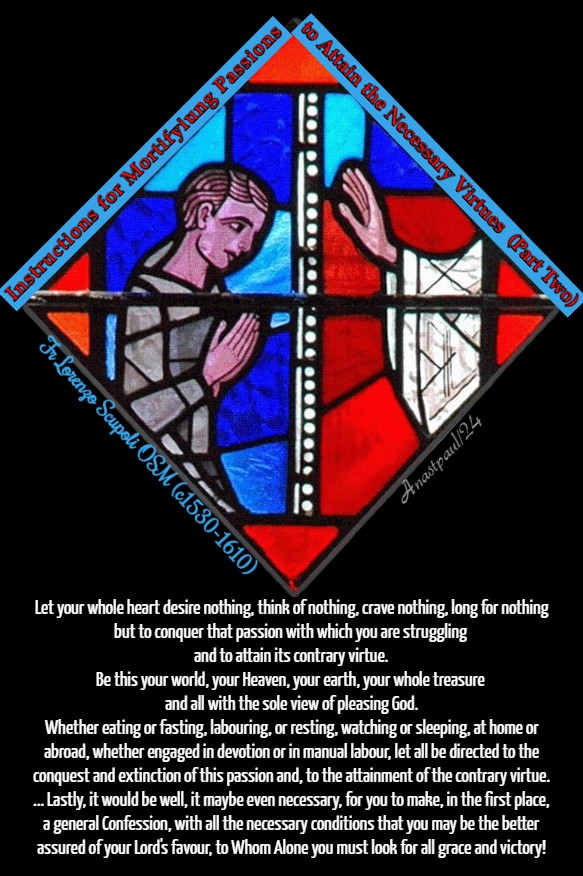

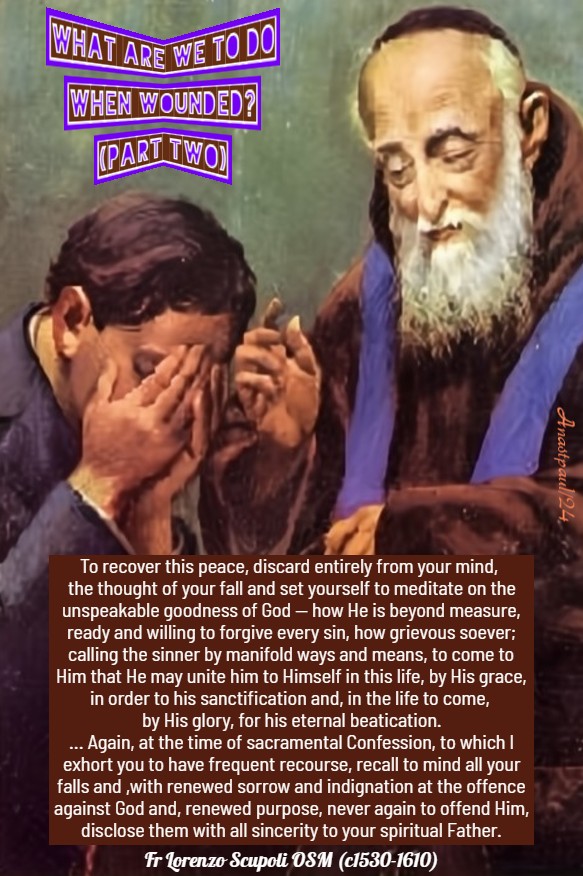




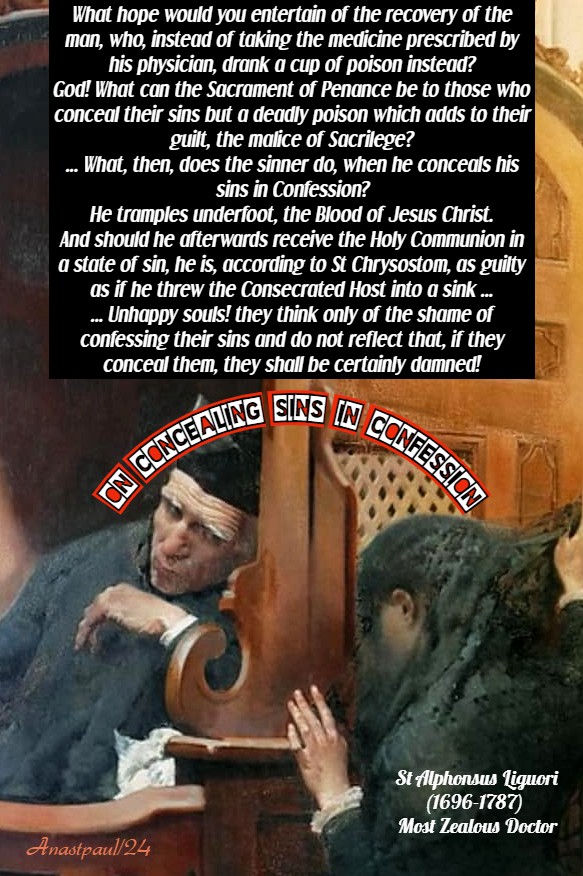

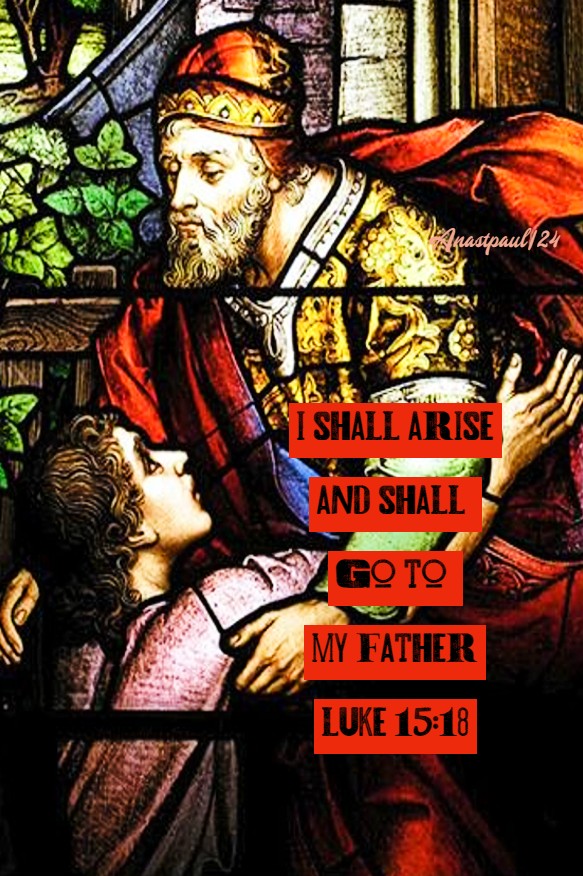





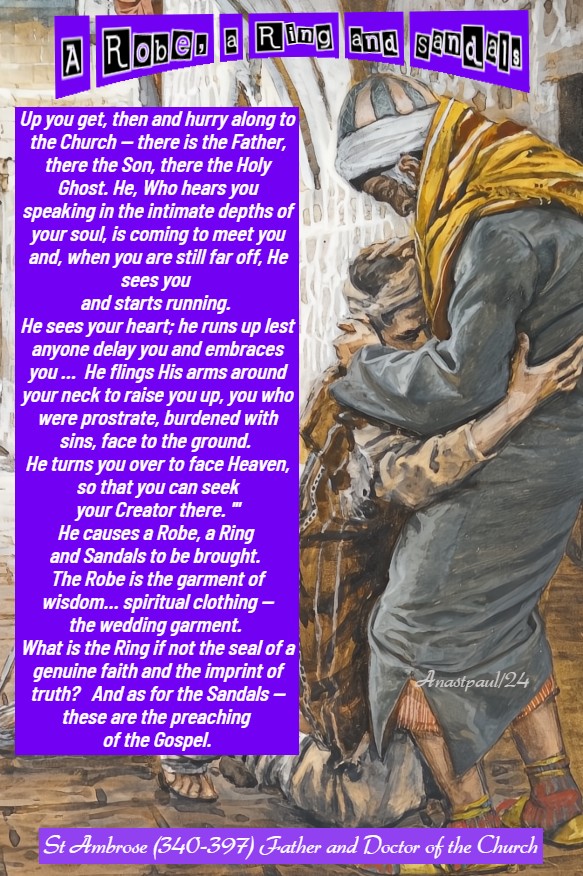



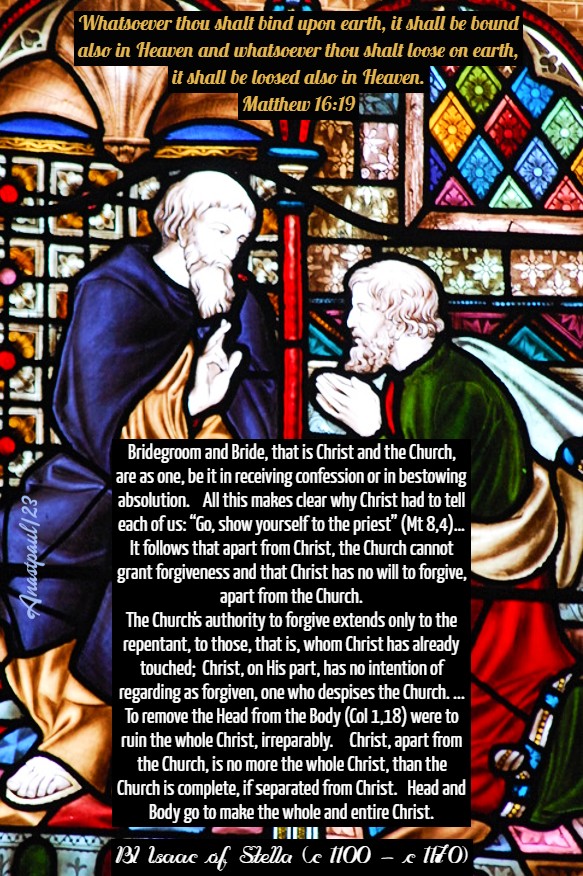


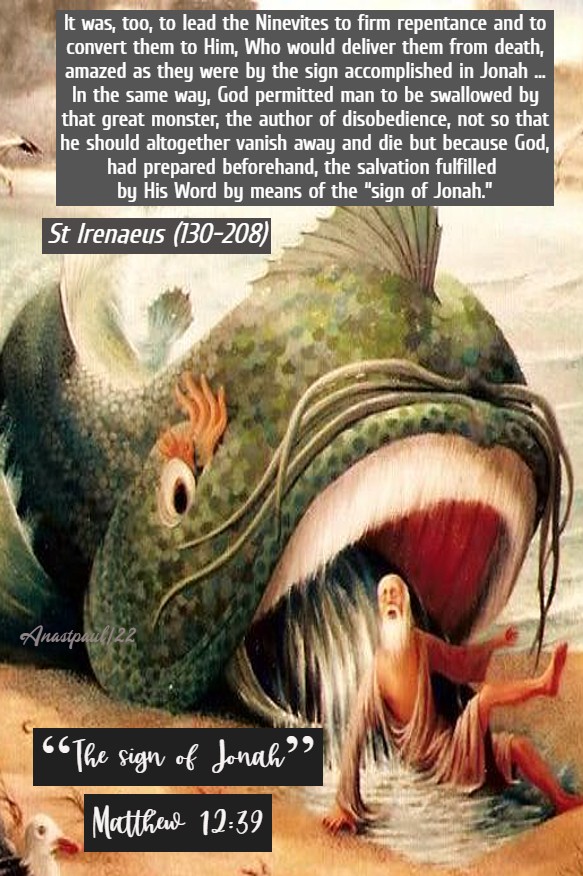








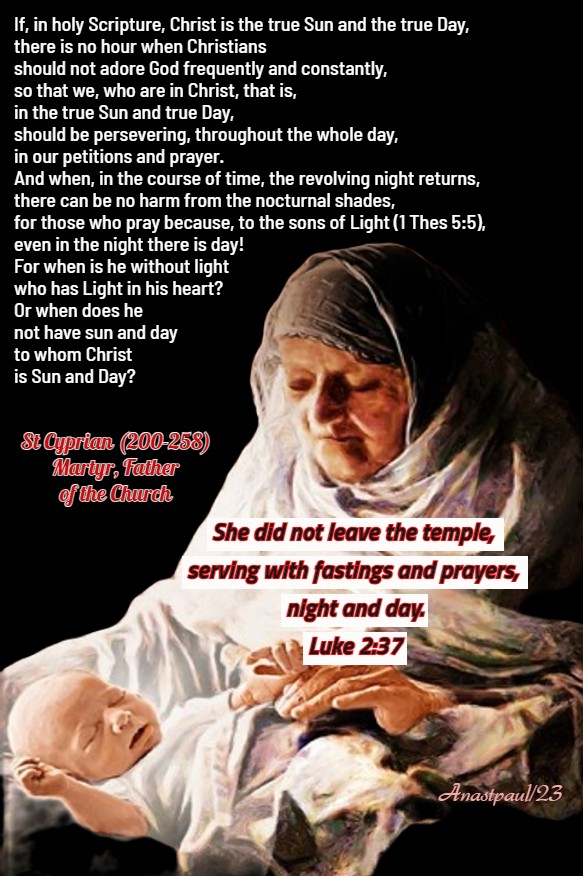




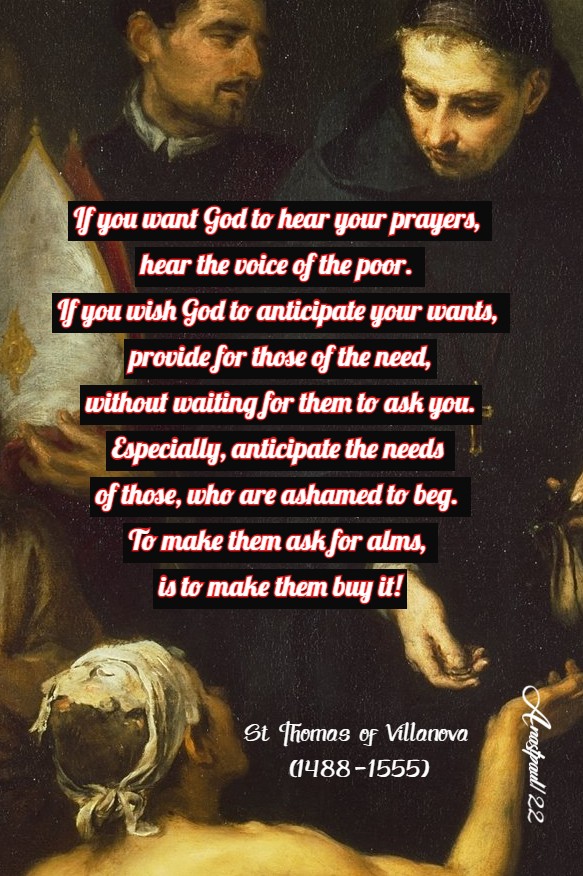























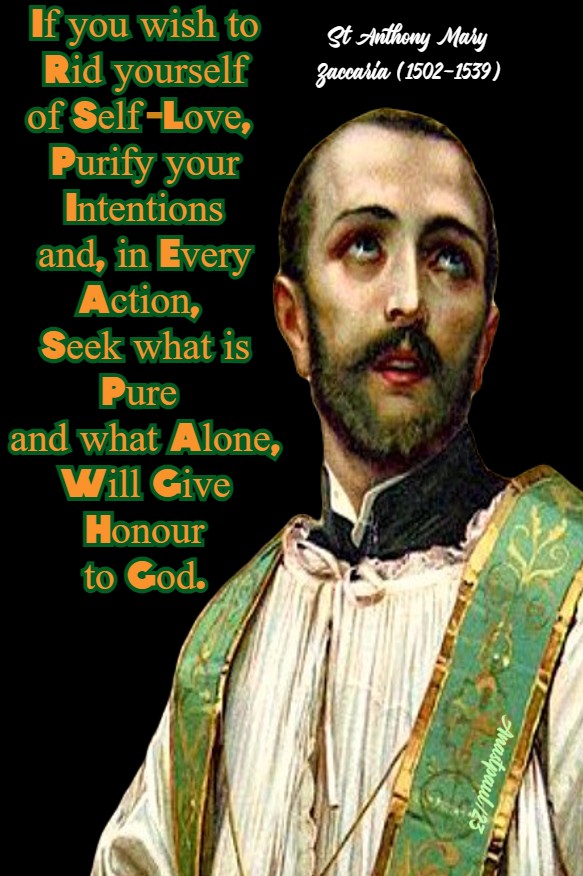
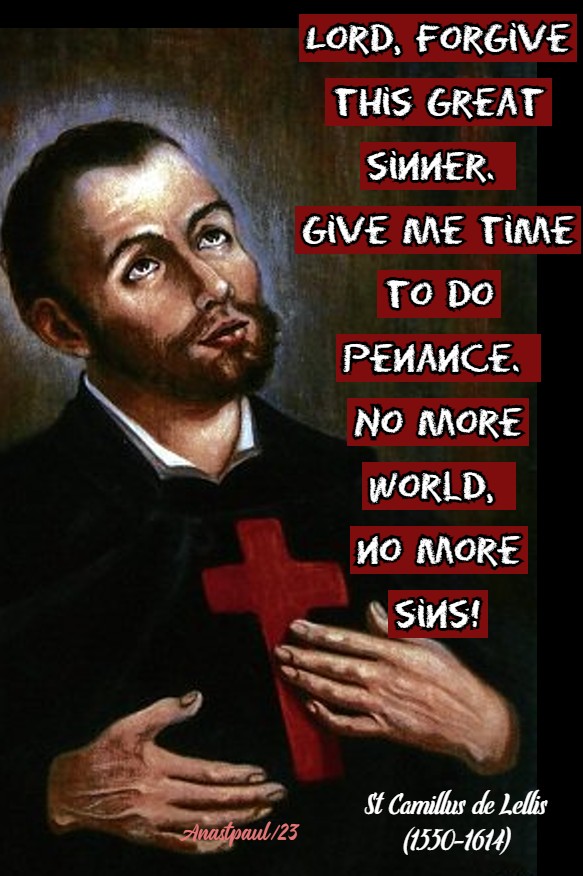








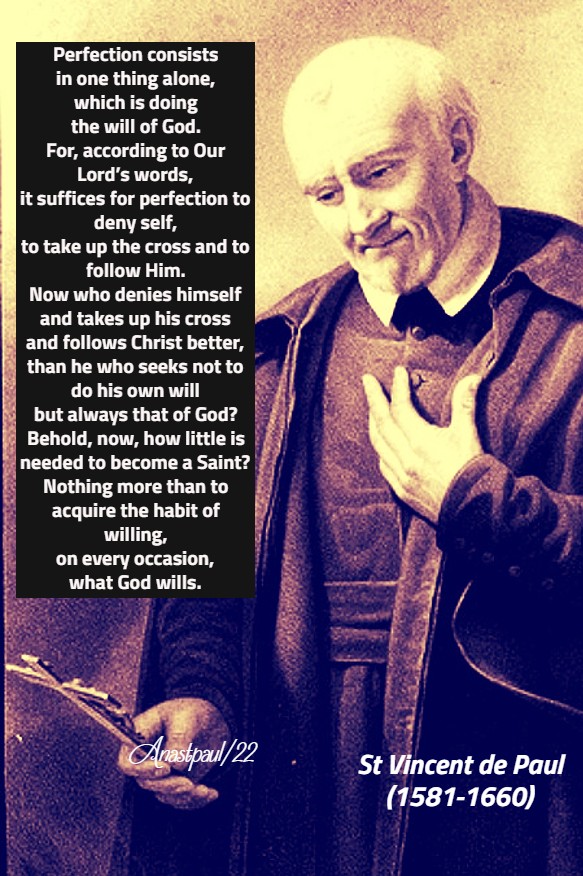
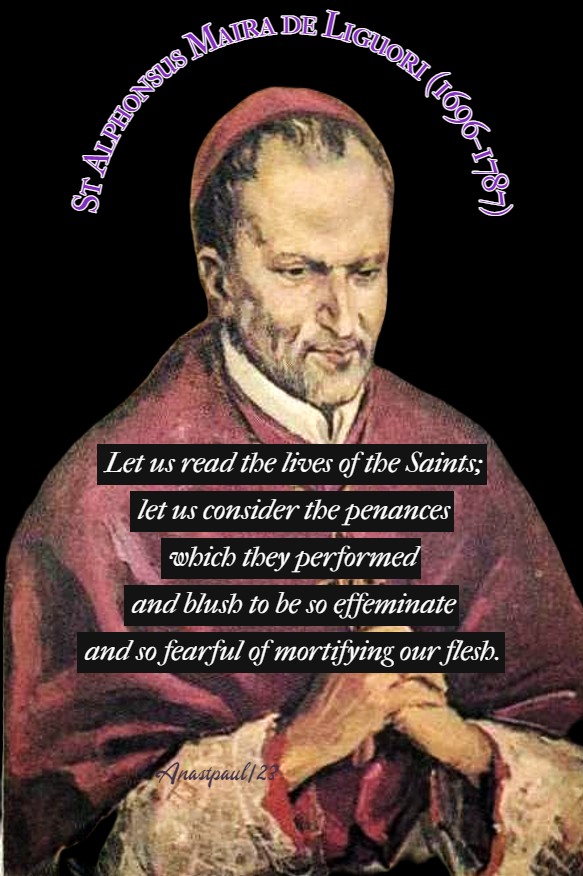

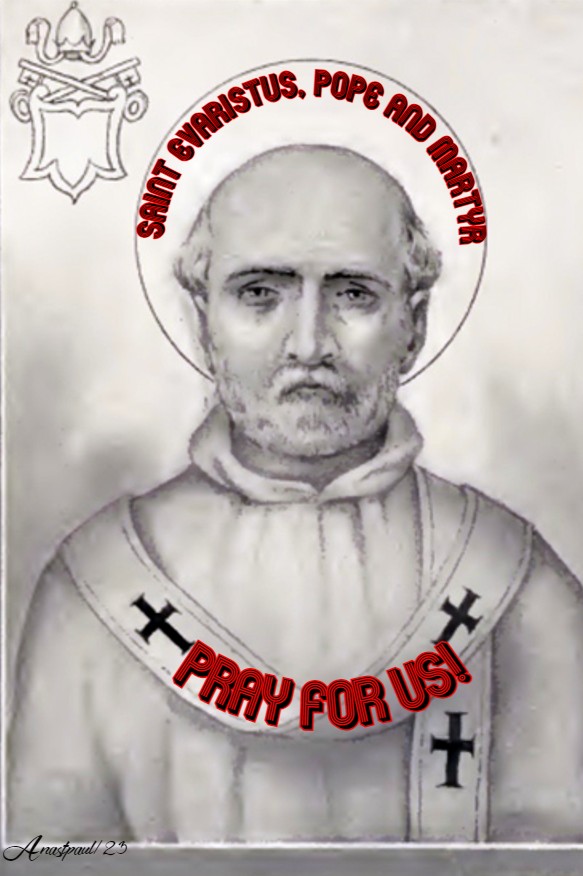





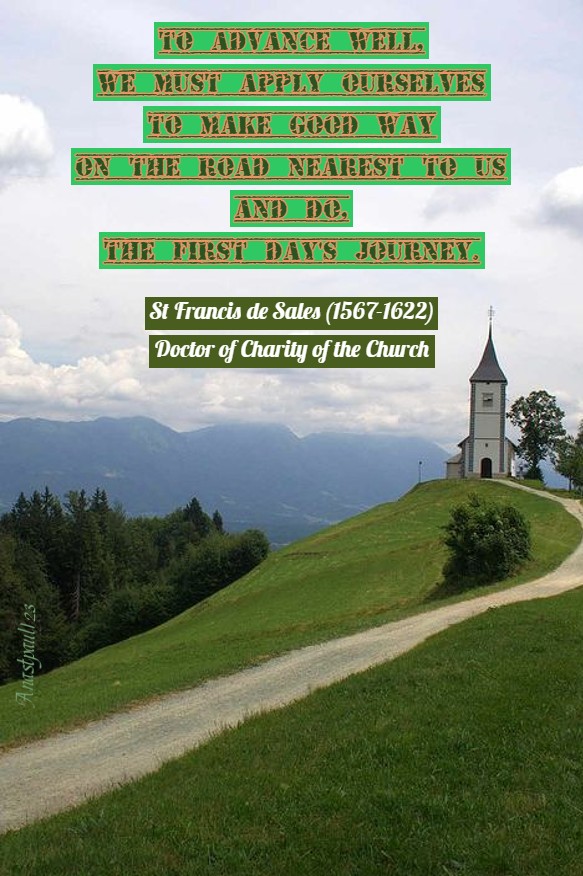




You must be logged in to post a comment.